The upcoming fight for the presidencies of the House and Senate: the Petro government's moves to appoint its allies

This week will set the tone for the final term of Gustavo Petro's administration. Negotiations and moves to determine the presidents of the Senate and the House will resume vigorously. The president and his administration are already aware of the difficulties involved in having an opponent on one of the governing boards of Congress. Therefore, the goal is to try to align those who are in agreement with his projects for the 2025-2026 term.
There will be bidding wars in both corporations, and everything seems to indicate that, as in previous years, the winner of the respective positions will be determined solely by a clean vote in each plenary session. The Ministry of the Interior knows that the next few days will be decisive, especially considering that the outlook for the last year of the legislative session is historically unfavorable for governments, as they are on their way out.
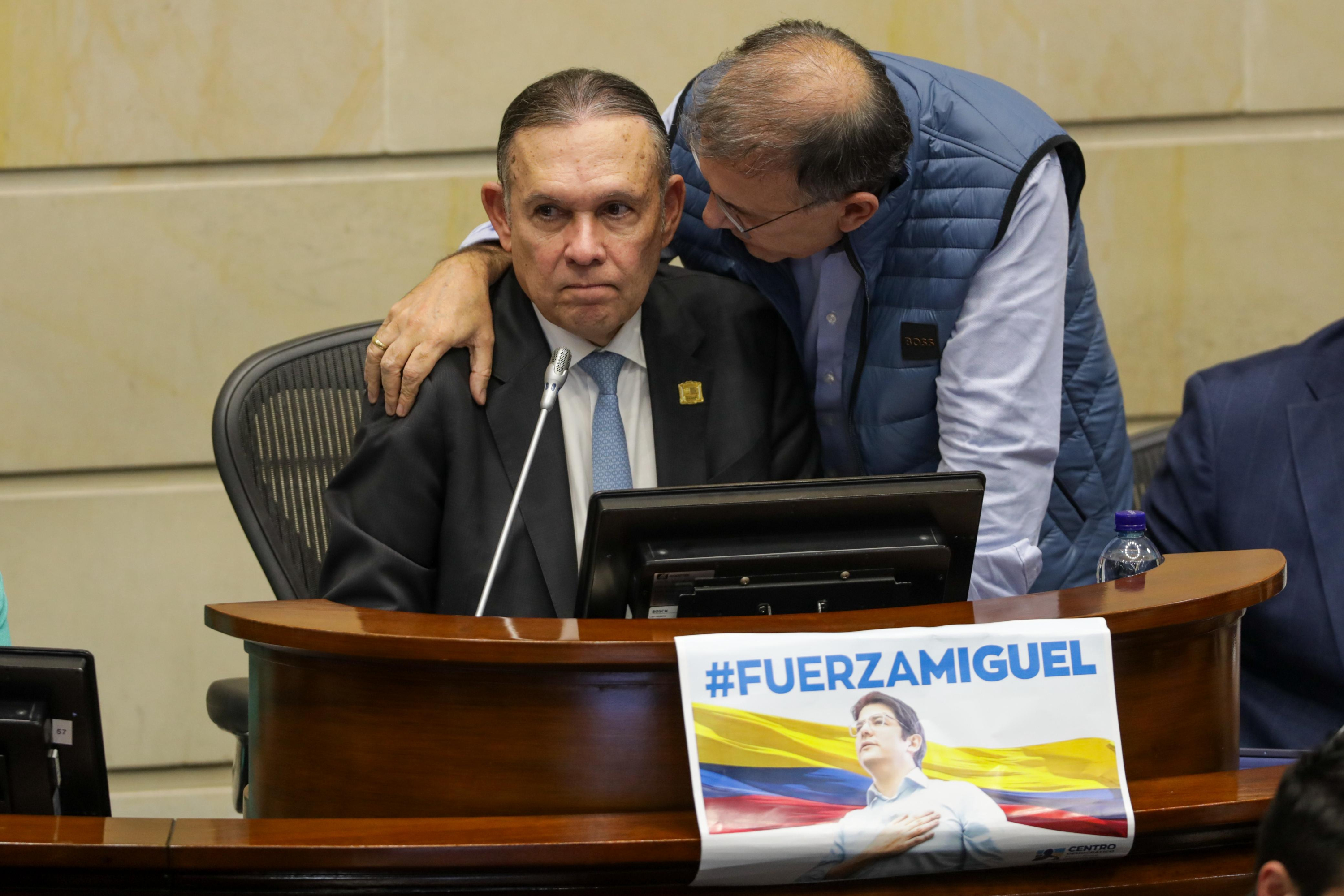
Efraín Cepeda, president of the Senate, during the debate on labor reform. Photo: César Melgarejo/El Tiempo
In each chamber of Congress, the outlook has some similarities and also significant differences. For example, in the Senate, it's clear that the presidency for this past year belongs to the Liberal Party, so no party will seek to ignore the agreements reached prior to July 20, 2022. In contrast, in the House, it's already been widely announced that the distribution made when the current Congress was installed will not be taken into account.
The reason for this disregard for the agreements stems from Radical Change's decision to change its position vis-à-vis the government. This group was, by agreement, entitled to the presidency of the Chamber. However, since it has moved from independence to opposition, the executive branch's premise is that it cannot hand over the leadership of a plenary session that has been sympathetic to it over the past four years. Thus, at least three parties are expected to compete in this body for the position currently held by Jaime Raúl Salamanca.
Fight Lidio García? At the end of the third legislative term, the Liberal Party announced early that its candidate for the final year's presidency would be Senator Lidio García. This had been agreed upon since the first legislative year, and the Liberals confirmed their aspirations with a statement. The candidate's candidacy had been in doubt due to the Cartagena senator's absences due to personal reasons.
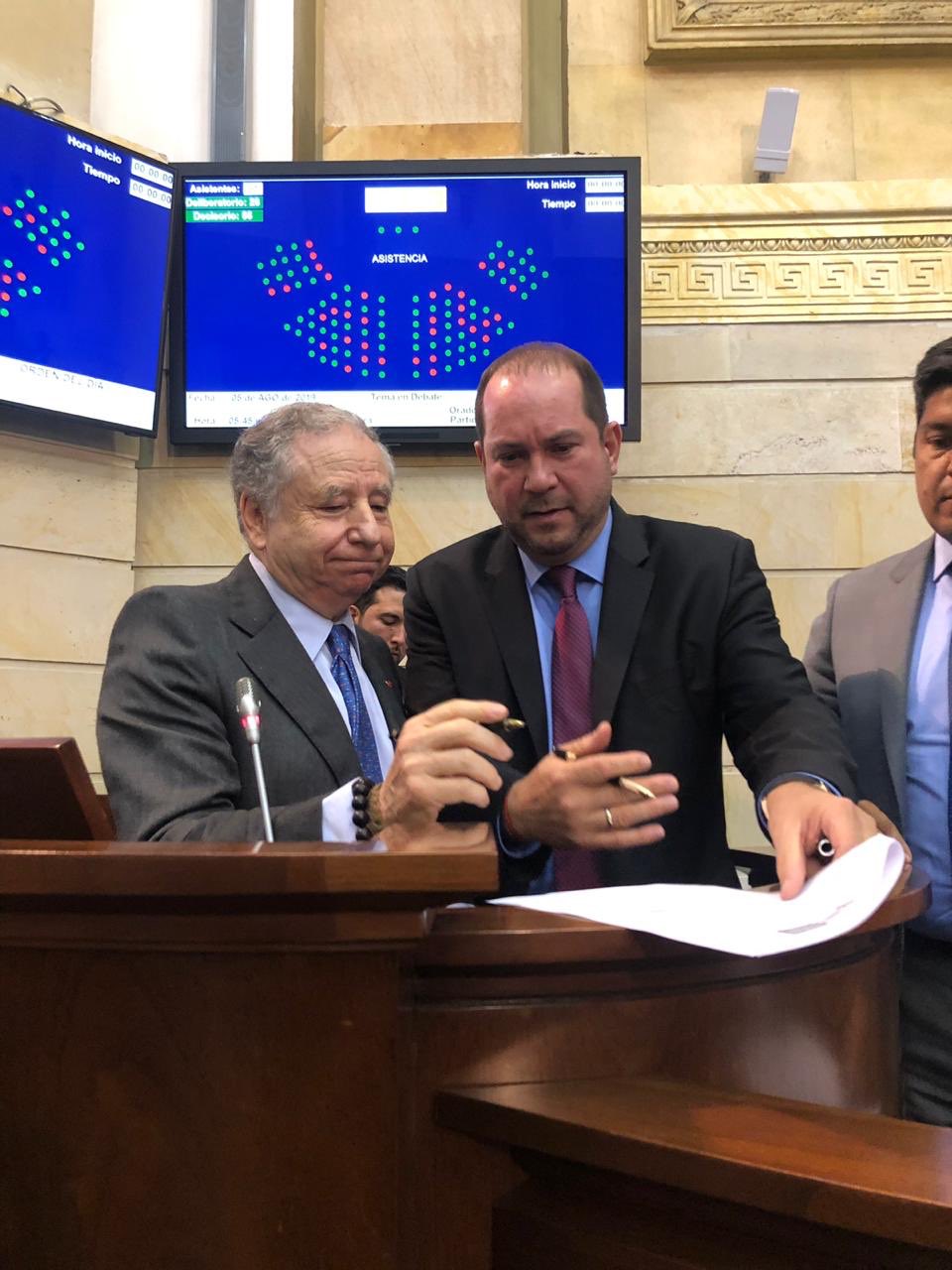
Lidio García in plenary session. Photo: Networks
"Understanding the dynamics of the legislative body you lead and in accordance with the political agreements reached with the other parties, we inform you that the Colombian Liberal Party will nominate the honorable Senator Lidio García as the sole candidate for the 2025-2026 presidency of the Senate of the Republic," reads a statement signed by the entire party, except for Senator Alejandro Carlos Chacón.
The announcement was followed by a statement from the U party and the conservatives, who joined the party: "The Senate bloc of the U party and the governing body announce to the public their decision to support the candidacy of the honorable Senator Lidio García for the presidency of the Senate."
However, those in Congress know that nothing is certain in politics until the day of the vote. Despite the clear support expressed in various statements, there will be at least two, if not three, red-flag congressmen who will seek to take up a dissenting position that challenges their party's decision.
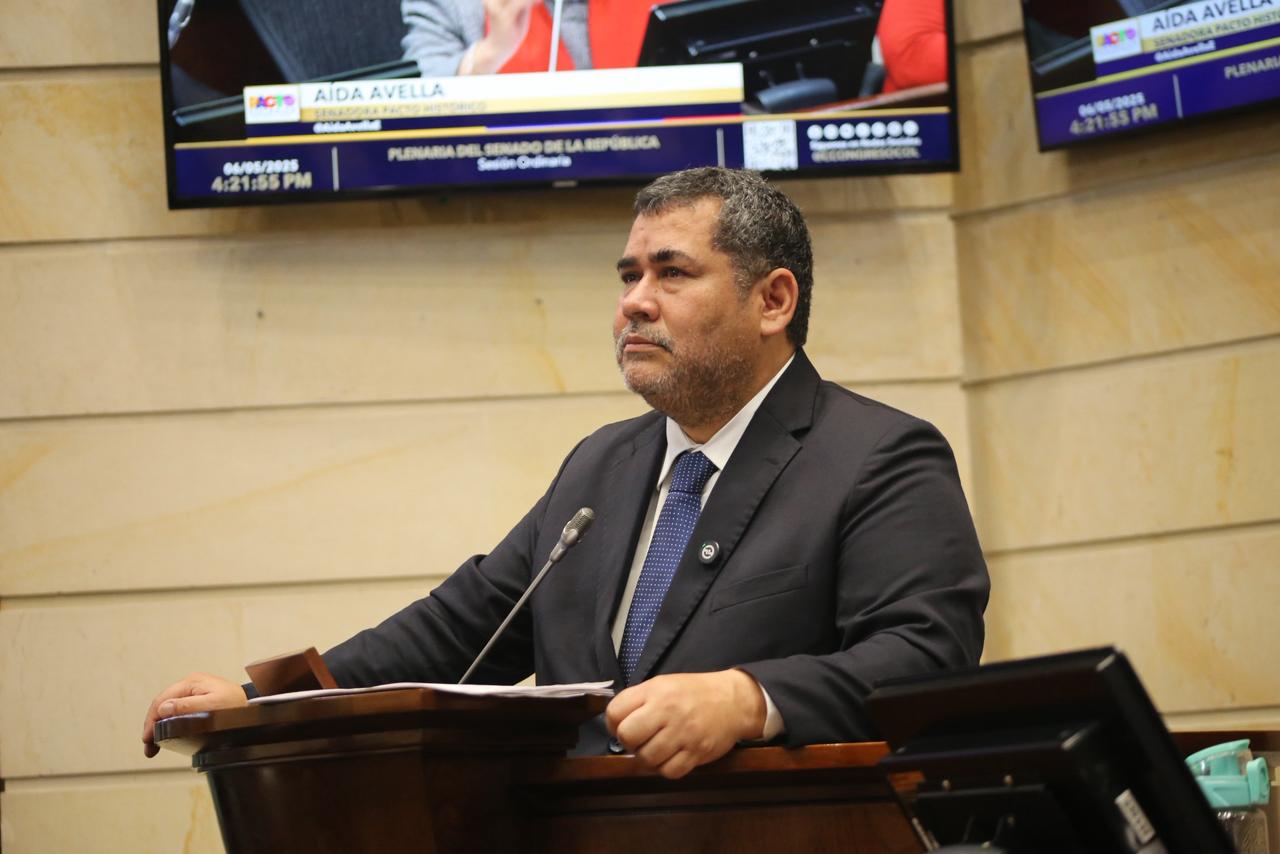
Alejandro Carlos Chacón. Photo: Senate Press
One of those who has openly admitted his possible aspiration is Senator Alejandro Carlos Chacón. He announced his decision to run last semester and continues to maintain the premise that he will be "the candidate of Congress." He has stated that his intention is to win votes without the support of the party, emphasizing the friendship he has had with members of Congress over these years of legislative work.
Chacón's campaign is based on the idea that he will not be a president of the government or opposed to it. In this way, he seeks to curry favor with his colleagues and even the Executive Branch. Since Lidio García is close to the Gaviria administration, they have tried to frame him as being in the same distant line of thought that President Petro followed by Iván Name and Efraín Cepeda. However, sources from the Ministry of the Interior have indicated that there would be fewer reservations about the official candidate, as he was a former colleague in Armando Benedetti's Caribe party.
"I wouldn't lose to Lidio. He's been a colleague and friend for over 16 years," the minister reportedly said regarding the possibility of García running for the candidate. However, this hasn't stopped them from exploring alternatives that might be closer to the Petro project. Along these lines, they could support figures like Fabio Amín or Laura Fortich, who are part of the governing Liberal group.
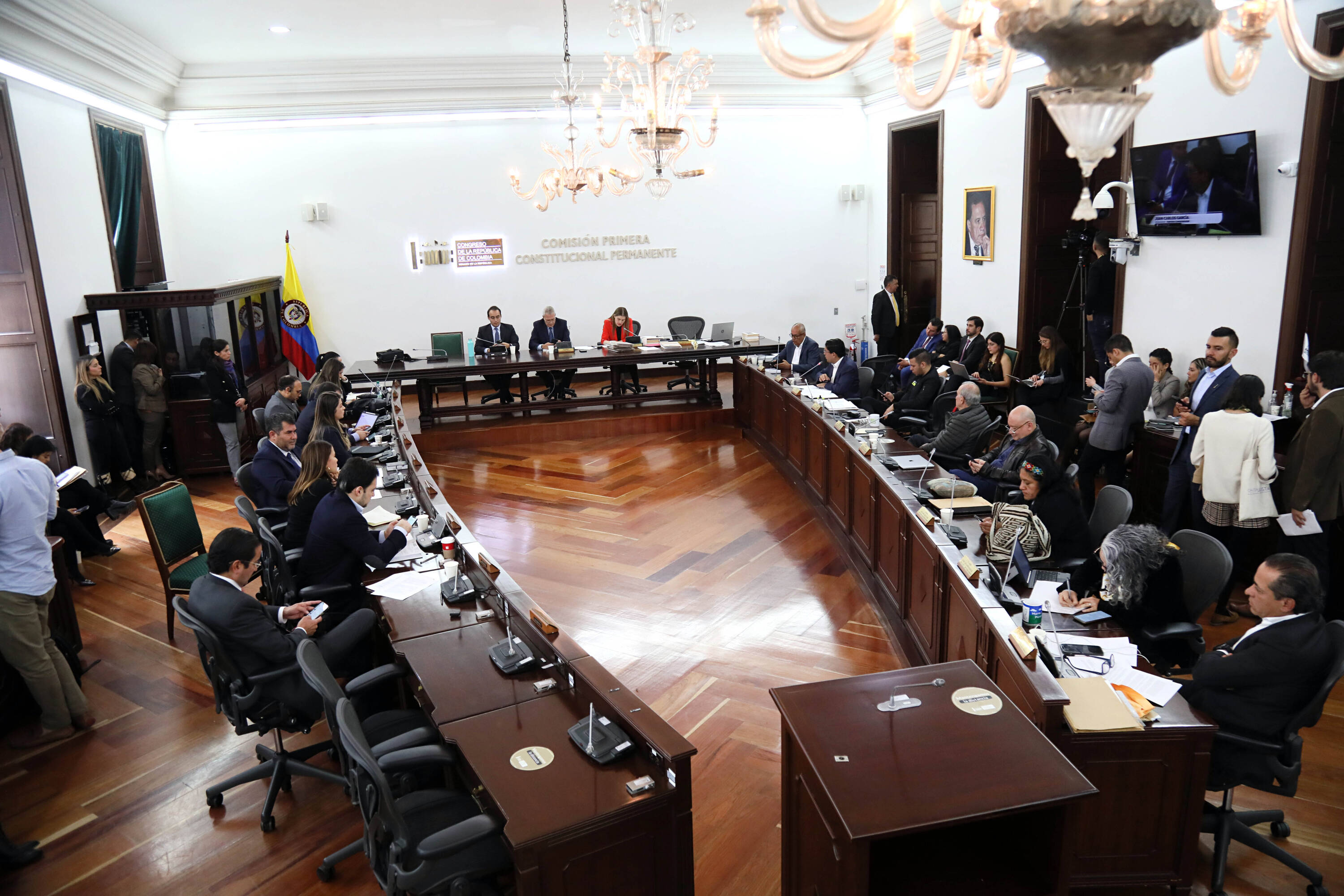
First Senate Committee chaired by Fabio Amín. Photo: Milton Diaz / El Tiempo
However, Amín told EL TIEMPO that he has no intention of running for the presidency. "Although some have expressed their eventual support, I am not currently seeking to be president of the Senate," said the senator, who even noted that he signed the statement announcing Lidio García's candidacy.
In recent days, rumors have resurfaced that Senator García would step back from his candidacy due to the same personal issues that caused doubts about his running in early June. However, the Liberal Party has been clear that this is not the case and that it remains firm.
The bidding in the Chamber In the House of Representatives, the only thing that's clear is that the agreements made won't be worth much in 2022. This means that at least three parties will be in contention: Cambio Radical, the U party, and the Conservatives. Despite the adverse environment for its candidacy, Cambio will insist that the agreements must be honored and will nominate Representative Néstor Leonardo Rico Rico. It's highly unlikely that he will achieve victory, as the House of Representatives has been pro-government from the beginning, and its presidents have been in that camp: David Racero, Andrés Calle, and Jaime Raúl Salamanca.
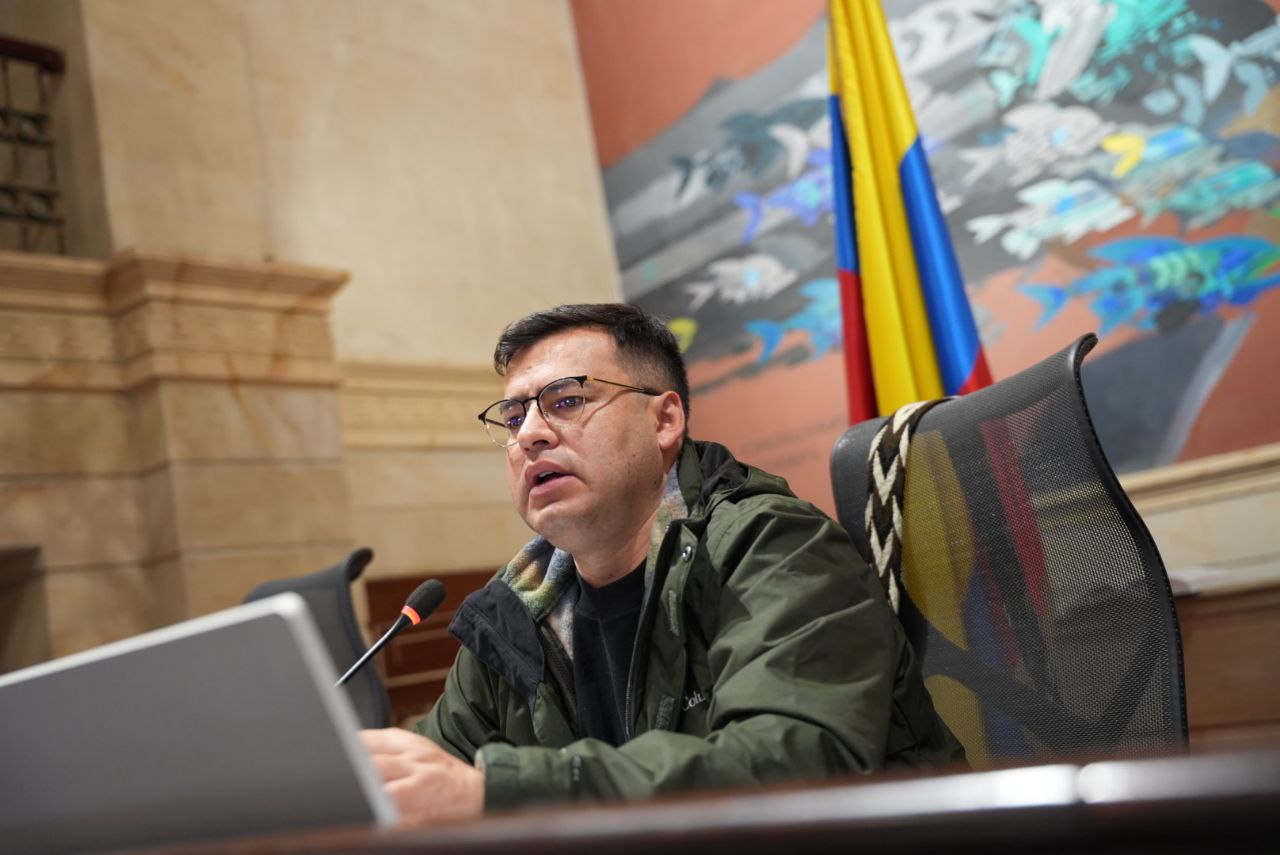
Jaime Raúl Salamanca, Speaker of the House of Representatives. Photo: Chamber Press.
Along these lines, the U Party has stated that if they choose a candidate from their party, the agreements would be respected, as they conducted negotiations at the beginning of the four-year term with Cambio Radical to achieve a better electoral coefficient in the distribution. The government's commitment would also be to ensure that this party maintains its dignity, as it has performed almost entirely in its favor in the Chamber.
Jorge Eliecer Tamayo, the caucus' candidate, and Julián López, who called himself the government's candidate, were initially mentioned as candidates for this party. However, Tamayo is expected to announce this week that he will not seek the presidency, and representatives are expected to elect Wilmer Carrillo as his replacement at the caucus meeting. The latter headed the Accusation Commission and is one of the members of the triumvirate conducting the investigation into President Petro for possibly exceeding limits—a process that has not made much progress.
López and Carrillo would remain as candidates. José Eliécer Salazar would also be added to this list. Any of the three would be to the Executive's liking, and it is not yet known whether they will campaign for one of these three. However, what is clear is that dignity must remain with the U.
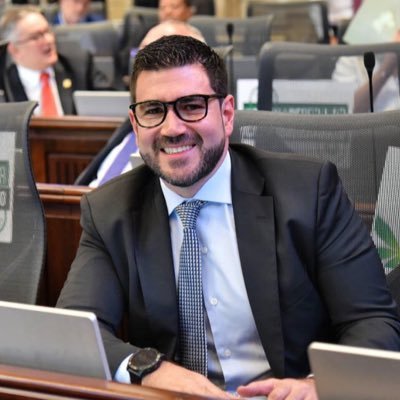
Juan Carlos Wills Photo: Private Archive
The Executive's position will be challenged by figures such as Juan Carlos Wills of the Conservative Party. He is also reportedly seeking a nomination and being elected by the plenary session. Although the Blues oppose the Petro government, it has had various positions, some opposing and others in favor. However, he would not hold much hope given the government's position of guaranteeing that the "U" party will win this position.
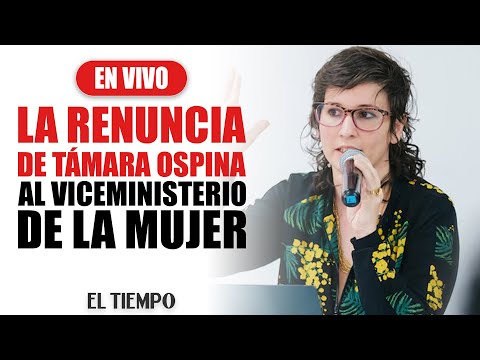
Resignation of Támara Ospina Posse, Deputy Minister of Women Photo:
Juan Sebastian Lombo Delgado
eltiempo





